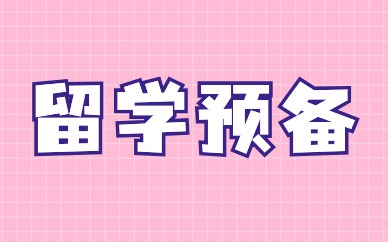中国式维和部队在海地
2023-02-05 18:41:39来源:互联网
最近这段时间总有小伙伴问小编中国式维和部队在海地是什么,小编为此在网上搜寻了一些有关于中国式维和部队在海地的知识送给大家,希望能解答各位小伙伴的疑惑。
 (资料图片)
(资料图片)
海地发生强震后,各国的救援(rescue)力量纷纷投身当地的重建工作。由于物资紧缺,中国维和部队更是发扬“苦中作乐”的精神,在完成维和任务之余,更是自力更生,耕地种菜。这不仅丰富了队员们的餐桌,更是为广大官兵带来了许多乐趣。
同其他国家的维和部队一样,中国驻海地维和队员从事着包括街道巡逻、守卫重地以及检查车辆在内的各种工作。但有一件事情是独一无二,中国式的。
The Chinese peacekeepers in Haiti do everything as forces from other nations - patrolling the streets, guarding key spots and checking vehicles. But there is one thing that seems to be uniquely Chinese.
中国维和部队的营地位于太子港机场附近的索那比工业园区内,队员们在那里种植了十多种蔬菜,品种从白菜、菠菜、丝瓜再到大蒜以及萝卜。 They grow a dozen kinds of vegetables inside their compound in the Sonapi industrial zone near the airport in Port-au-Prince, ranging from Chinese cabbage, spinach and sponge gourd to garlic and radish.
事实上,各自由10名警员组成的9个营队,每队都有自己的一小块菜地。中国驻海地维和部队指挥中心主任侯辉仟表示,大家每个月都要进行竞赛,看哪个队上交的蔬菜最多。
In fact, the nine battalion teams, each with 10 police officers, all have their small plot of farmland. And there is a monthly competition to assess who produce the most veggies, according to Hou Huiqian director of the office for the command center of Chinese UN peacekeeping police in Haiti.
每天下午五点钟左右,侯辉仟都会到营地里的那三块各自种着不同蔬菜的菜地去转转。
Around 5pm each afternoon, Hou would take a walk to the three different veggie plots inside the compound.
“这能够保障新鲜蔬菜的及时供应,便于维和战士们及时补充维生素。”侯辉仟说。
"It provides a good supply of fresh veggies and vitamin to our peacekeepers," Hou said.
他说其他国家的维和部队以及国内来访的官员都对这一场景表示吃惊。斯里兰卡的维和人员或许是中国之外的唯一在营地种植蔬菜的部队,但他们只种一种蔬菜。
He said that UN peacekeepers from other nations and visiting official from China are both amazed by the scene. Besides China, Sri Lankan peacekeepers are probably the only other forces which grow only one kind of vegetable in their base.
维和部队的院墙内侧写着几个大字,意思是“保持南泥湾精神”。20世纪30年代中国共产党在南泥湾发起了生产运动,力求在国民党军队那咄咄逼人的攻势下得以休养生息。
On the inside wall surrounding the peacekeeping compound, huge Chinese characters meaning "Keep the Spirit of Nanniwan" were written. Nanniwan was a site of a famous farming movement launched by the Chinese communist army in the 1930s in a bid to survive the aggressive encroachment of the mighty KMT army.
上周末的某个傍晚,中国维和队员们为蔬菜浇水、施用有机肥、清理杂草并将成熟的果实采摘下来。一些蔬菜可能会在一小时后或第二天出现在餐桌上。
On a late afternoon this past weekend, peacekeepers were seen watering vegetables, spraying organic fertilizer, getting rid of the weeds and harvesting ready ones. Some of the veggies might end in the dinner table an hour later or the next day.
一位正在耕种的战士表示,每个营队都有几个人是来自农村的,他们正好可以从事譬如浇灌这类的主要工作。对于那些从未干过农活的人,他们开始时可以干些清除杂草的活。/
Every team has a few from the countryside and they are the ones doing the key work such as watering. For people who never did farm work, he starts by picking up weeds, said a soldier ploughing the land.
“在完成了一天的站岗巡逻任务后,这给大家增添了很多欢乐。”中国维和部队的高级警官陈永军说。
"This is a lot of fun after standing on guard and patrolling in the day," said Chen Yongjun, a senior officer of the Chinese peacekeepers.
他说,这些自己种植的蔬菜现约占营地蔬菜供给的60%。
The home-grown veggies now accommodate for some 60 per cent of the vegetable supply in the Chinese compound, he said.
陈永军来自云南省,他表示自己直到参军后才学会种植蔬菜。他说:“我已经当了15年的军人,现在我知道许多种植蔬菜的知识。”在驻扎海地之前,陈永军服役于中国西南部的云南边防前线。
Chen Yongjun, from Yunnan province, said he did not learn how to grow vegetable until he joined the army. "I have been in service for 15 years and I know a lot about the growing veggies now," said Chen, who served in China"s Southwest Yunnnan border frontier before coming to Haiti.
另一位维和部队的警官表示,由于没有施用化肥,这些都是名副其实的绿色蔬菜。
Another peacekeeping police officer talked about how green the vegetables are since no chemical fertilizer is used.



